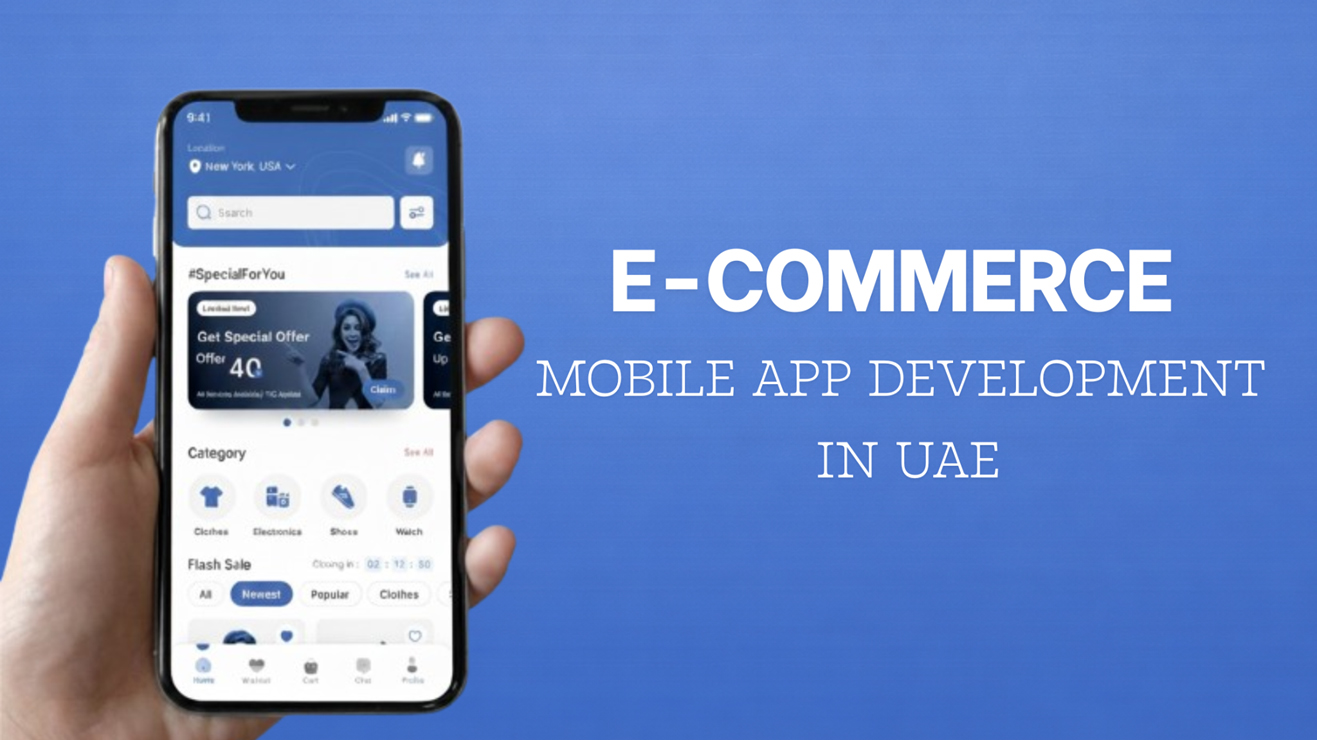Mobile Application Development for Businesses in UAE
Mobile apps have become powerful tools for businesses aiming to boost customer engagement, streamline operations, and stay competitive in today’s digital landscape. With rising smartphone use, offering services via mobile supports long-term growth. Mobile Application Development for Businesses in UAE helps deliver better experiences and drive business success.
In this blog, we cover why mobile apps matter, what users expect, and how to develop the right app for your business. You’ll learn about app types, key features, and benefits. We also explain how to hire a development company, avoid common mistakes, and understand the costs involved.
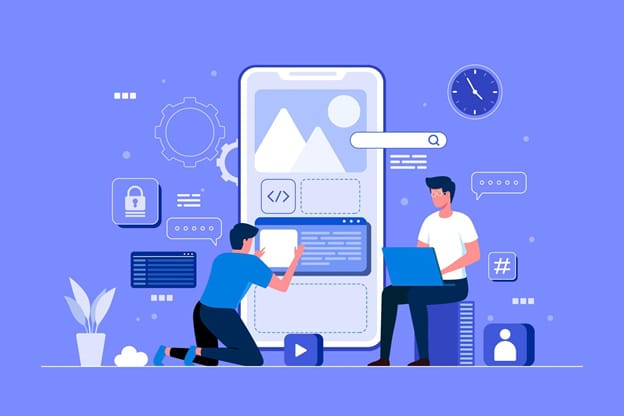
- Why Every Business Needs a Mobile App Now
- How Mobile Apps Add Value to Your Business
- What Users Expect from Business Mobile Apps
- How to Develop a Mobile App for Business
- Types of App Development You Can Explore
- Features of Mobile Applications That Drive Results
- Benefits of Developing a Mobile App for Business
- How to Hire a Mobile App Development Company
- Common Mistakes to Avoid in Mobile App Development
- Understanding the Cost of Mobile App Development
- Our Work at a Glance
- Ready to Start Your App Journey with Us?
Why Every Business Needs a Mobile App Now
If your business relies only on a website or physical store, you could be losing customers to mobile-first competitors. In today’s digital age, mobile apps are key to boosting visibility, engagement, and growth.
- Boost Your Digital Presence
Be visible where your customers spend the most time—on their smartphones. - Faster Customer Access
Apps load quicker than websites and offer on-the-go access to your products or services. - Better User Engagement
Features like push notifications, loyalty rewards, and in-app messaging keep users active and connected. - Personalized Experiences
Mobile apps use data to offer tailored content, recommendations, and offers—boosting conversion rates. - Build Brand Authority & Trust
A well-designed app shows professionalism and enhances your brand image. - Trackable Insights
Leverage user behavior insights to drive smarter, data-backed business decisions. - Increase Sales & Retention
With features like 1-click checkout and personalized offers, apps drive more revenue and repeat purchases.
How Mobile Apps Add Value to Your Business
Mobile apps can reshape your customer experience and internal operations. Here’s how:
Key Business Benefits of Mobile Apps:
- Increased Customer Engagement – Push notifications, loyalty programs, and personalized content.
- Brand Visibility & Recognition – Your logo on a user’s screen builds brand recall.
- Streamlined Operations – Apps improve workflow efficiency with automation and instant updates.
- Revenue Growth – In-app purchases, subscriptions, or faster ordering.
- Data Insights – Track user behavior and preferences to make smarter business decisions.
What Users Expect from Business Mobile Apps
Today’s mobile users are smarter, faster, and have higher expectations than ever before. If your app doesn’t meet their needs instantly, they won’t hesitate to delete it. That’s why understanding what users truly want is the first step toward building a successful mobile app.
Here are the key features users look for in a great business mobile app:
- Speed & Smooth Performance
Users want apps that load fast and run without glitches—no one likes waiting. - Strong Security & Privacy
With growing concerns over data protection, users expect their personal information to be safe and secure. - Personalized Experience
Smart apps recommend relevant content, offers, or services based on user behavior. - Easy Navigation & Search
Clear menus, intuitive layouts, and quick search options help users find what they need without frustration. - Seamless Integration
Users expect apps to work well with other tools they use—like Google Maps, payment gateways, or social media. - Offline Access
The ability to use key features even without internet access is a big plus, especially for on-the-go users.
How to Develop a Mobile App for Business
Developing a mobile app becomes easier when you follow a clear step-by-step approach:
- Goal Setting
Define your business objectives, target users, and desired outcomes. - Market Research
Understand your audience, analyze competitors, and spot market gaps. - Wireframing
Sketch the app layout and plan key features and navigation flow. - UI/UX Design
Create a clean, user-friendly interface for smooth interaction. - Development
Choose the right tech stack and start building your app. - Testing & QA
Test for bugs, performance, and security issues before launch. - Launch
Make your app available to users by launching it on both the App Store and Google Play. - Maintenance
Keep your app updated with fixes, new features, and user feedback.
Types of App Development You Can Explore
APP TYPE | WHAT IS IT | GOOD FOR | THINGS TO KEEP IN MIND |
Native Apps | Apps built just for iPhone or Android. | Top performance, uses all phone features. | Costs more, takes longer, separate for each. |
Hybrid Apps | Mix of web and native tech. | Faster to build, works on both iPhone & Android. | Can be a bit slower, fewer phone features. |
A web app that acts more like a real app. | App-like features without an app store download. | Some feature limits, browser dependent. | |
Cross-Platform Apps | One app for both iPhone and Android. | Good balance of cost, speed, and quality. | Might be slightly less “perfect” for complex tasks. |
Features of Mobile Applications That Drive Results
To deliver real business value, your app needs features that enhance user experience and support your goals. Here are some essentials to include:
- User Authentication – Secure logins through email, phone, or social accounts.
- Push Notifications – Instantly engage users with updates, offers, or alerts.
- In-app Messaging & Chatbots – Improve customer support and engagement in real time.
- Payment Gateway Integration – Enable smooth and secure transactions within the app.
- Geo-location Services – Offer location-based services, delivery tracking, or promotions.
- Analytics Dashboard – Monitor user behavior and app performance for data-driven decisions.
- Social Media Integration – Let users share content and log in using social platforms.
- Offline Mode – Ensure basic functionality even without internet access.
Benefits of Developing a Mobile App for Business
A well-built mobile app is more than just a tech trend—it’s a smart investment that strengthens your business from all angles. Here’s what you can gain:
- Boosted Brand Loyalty – Stay top-of-mind with consistent user interaction.
- Enhance Business Efficiency – Automate routine tasks and optimize internal processes.
- Direct Communication with Customers – Engage users through push notifications and in-app messages.
- Competitive Edge – Stand out in the market with a tailored digital presence.
- Deeper Customer Insights – Gather data to better understand user behavior and preferences.
- Reduced Customer Service Costs – Support users via chatbots and self-service features.
How to Hire a Mobile App Development Company
A great idea needs the right development partner to bring it to life effectively. Look for a company with a strong portfolio, proven expertise in your preferred platforms, and transparent pricing. On-time delivery and reliable after-launch assistance play a crucial role in app success.
XL Technologies is a leading mobile app development company in Dubai, delivering tailored solutions with a strong focus on top-notch UI/UX design.Partnering with a local expert like us means smoother communication, timezone alignment, and full compliance with UAE business regulations—ensuring your project runs seamlessly from start to finish.
Common Mistakes to Avoid in Mobile App Development
Even great ideas can fail without the right execution. To build a successful mobile app, steer clear of these common mistakes that many businesses overlook:
- Skipping Market Research – Not understanding your audience can lead to building the wrong app.
- Poor UI/UX Design – If users can’t navigate easily, they’ll uninstall quickly.
- Overloading with Features – Too many features confuse users and bloat the app.
- Lack of Testing – Bugs and crashes hurt credibility; thorough testing is essential.
- No Monetization Plan – Without a clear revenue model, sustainability becomes tough.
- Ignoring Platform Guidelines – Not following iOS/Android standards may lead to app rejection.
- Choosing the Wrong Development Partner – A bad fit can delay timelines and compromise quality.
Understanding the Cost of Mobile App Development
Several factors influence cost:
COST FACTOR | IMPACT |
Type of app | Native is more expensive than hybrid or cross-platform (e.g., Flutter). |
Number of features | More features = higher cost and longer development time. |
Design complexity | Custom UI/UX takes more time and increases cost. |
Development location | Costs vary globally (e.g., Dubai vs India vs US). |
Maintenance & updates | Long-term costs for bug fixes, version upgrades, and new features. |
Technology stack | Using modern frameworks like Flutter or outdated stacks affects scalability, cost, and speed. |
Our Work at a Glance
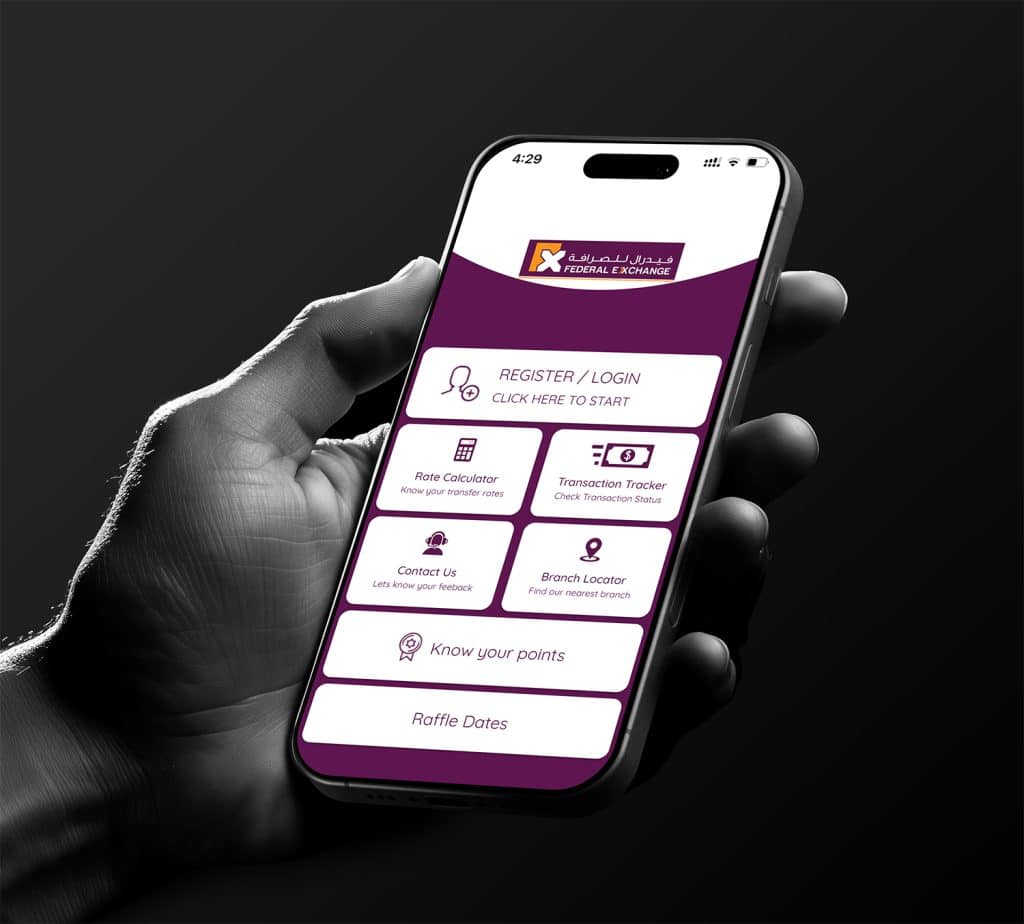
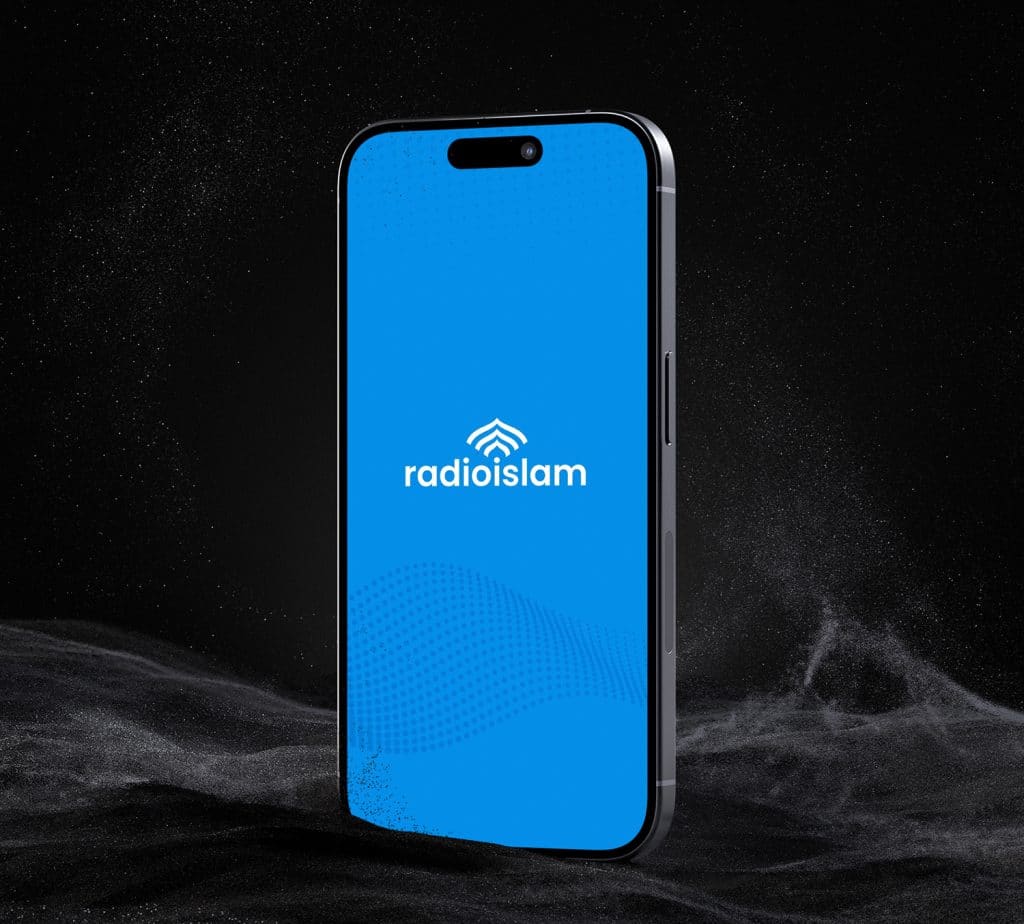
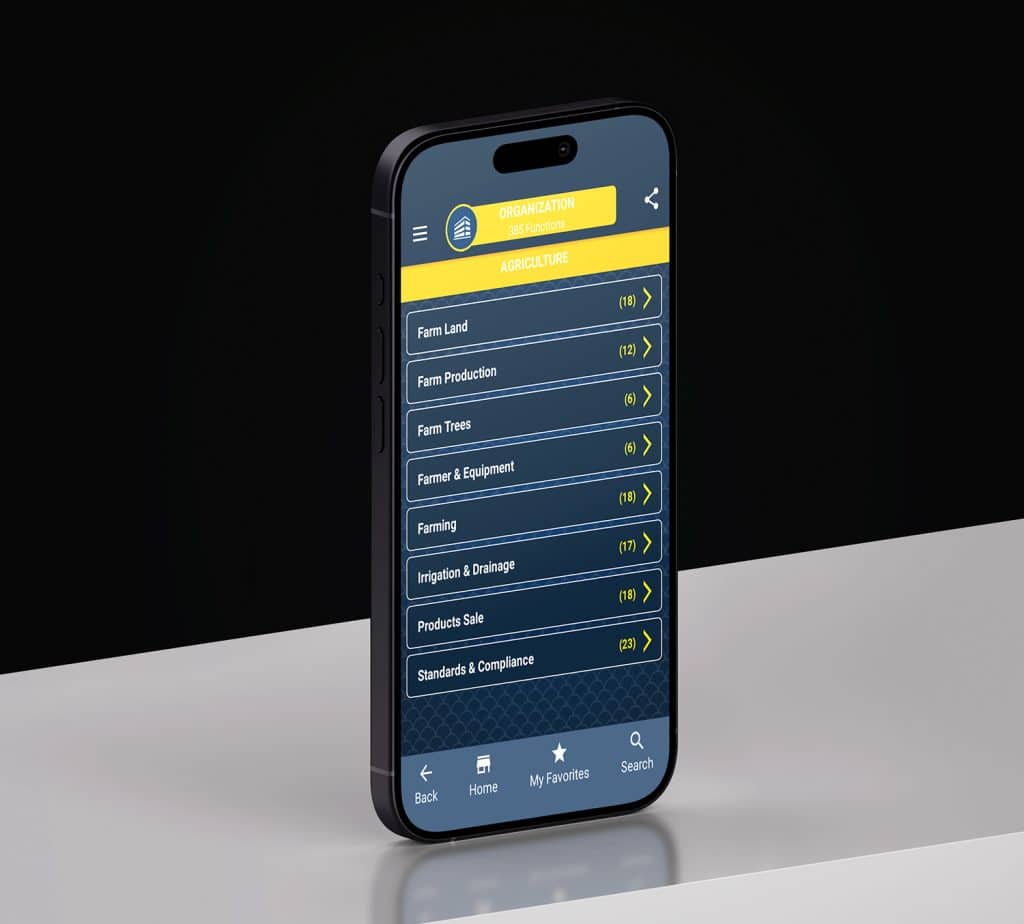
Ready to Start Your App Journey with Us?
Based in Dubai, XL Technologies develops custom mobile apps that drive business growth and improve user engagement. Our expert team crafts fully tailored solutions aligned with your specific goals—whether it’s increasing customer interaction, boosting sales, or streamlining business operations.
Let’s bring your app idea to life. Contact us today to get started.
Email: [email protected]
Call Us: +97-155-1226252 , +91-9072349900
FAQs
1. How much does it cost to develop a business mobile app?
The average starting price ranges from AED 15,000 to AED 20,000, but it can vary based on your app’s features, design, technology , platform, and complexity. The more advanced your requirements, the higher the cost.
2. Is Flutter a good choice for business app development?
Yes, Flutter is a great option for building cost-effective, cross-platform business apps. It allows you to use a single codebase for both Android and iOS, which speeds up development, reduces cost, and simplifies maintenance—without compromising on performance or UI quality.
3. How long does it take to build an app?
On average, it takes 2 to 6 months to build a fully functional business mobile app.
The timeline depends on several factors, including:
- App complexity (basic vs. advanced features)
- Number of screens and user roles
- Design customizations
- Chosen platform (Android, iOS, or both)
- Technology used (e.g., Flutter for faster cross-platform development)
- Client feedback & revisions
For a simple app with core features, 6–8 weeks may be enough. More complex apps can take 3–6 months or longer.
4. Can mobile apps integrate with my existing business systems?
Yes, mobile apps can integrate with your existing business systems like CRM, ERP, or payment gateways through secure APIs. This ensures seamless data flow, automation, and better efficiency.
5. Will I be able to update or scale the app later?
Yes, a properly built app can be updated or scaled later as your business grows.
6. What about app maintenance and support?
At XL Technologies, we provide 1-year free maintenance after your app launch, covering bug fixes and minor updates. After the first year, you can upgrade to an Annual Maintenance Contract (AMC) for continued support, performance optimization, and feature enhancements based on your evolving business needs

